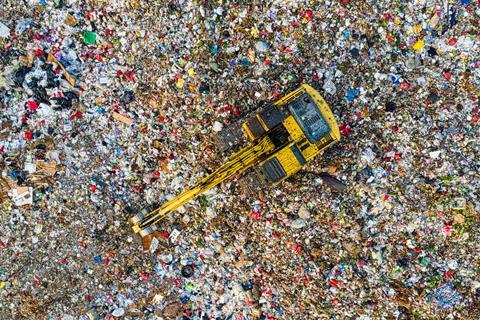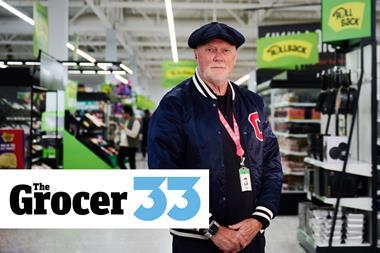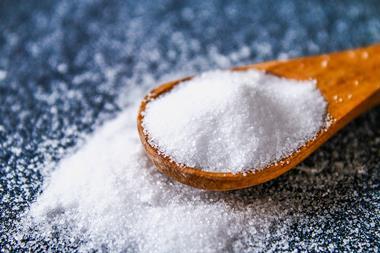
Supermarkets and suppliers produced more than a million tonnes of plastic packaging in the first year of the industry’s major war on plastic, it was revealed today.
The figures, for 2018, which include over a billion unnecessary single-use packaging products, were released for the first time by Wrap, which is overseeing the UK Plastics Pact.
The report said there were huge challenges left to fix a “broken” system of throwaway culture, but praised supermarkets and retailers, which represent 85% of plastic production the industry, for making “positive early progress” against the Pact’s key targets.
It also warned there were huge risks to issues such as food waste, including making rash decisions about plastic which could rebound and cause more harm than good.
However, campaigners said the huge amount of plastic being produced showed the Pact’s targets needed to be far more ambitious.
The report says since the Pact was launched in April last year, supermarkets and suppliers have come up with plans to get rid of 1.1 billion items of single-use plastic, as part of its first target of eliminating problematic or unnecessary single-use plastic.
However, other materials, including single-use drinks bottles and non-detectable black plastic, have not yet been officially designated as “unnecessary” by the Pact, which is investigating the future use of 19 different types of single-use plastic which look set to remain in the system for far longer, despite moves by leading supermarkets and suppliers.
Last month The Grocer revealed the UK’s leading supermarkets were on the verge of removing all black plastic from own-label ranges, but many suppliers and smaller stores are lagging behind.
Wrap said supermarkets had removed 3,400 tonnes of unnecessary plastic packaging from fresh produce and 137.5 million plastic stickers from fruit and vegetables, saying they had “led the change”.
But Wrap said “complex challenges” remained if the Pact was to hit its target of removing all unnecessary plastic by 2025.
The report, which covers the data from the Pact’s initial 55 members (more than 80 are now signed up), also reveals they are over halfway towards the target of all their packaging being reusable, recyclable or compostable, also by 2025.
Key problem plastics currently not in this bracket included PE film, which is currently only recyclable through collection points at large supermarkets, and non-detectable black plastic.
Wrap also said “systematic change” was needed by government and businesses to hit its target of 70% of plastic packaging effectively recycled or composted by 2025, with the baseline figure standing at 44%, despite a recent Wrap report suggesting three in five UK households report extra recycling of one or more items.
Wrap CEO Marcus Gover said progress from the Pact had not been smooth.
“As expected, the road has been challenging and finding the right solutions is not always straightforward,” he said.
“Highly complex challenges remain, such as developing a recycling system for films and flexible packaging. The complexities of fixing a broken system of make, use, dispose into one of circularity will take time, investment and a greater understanding across the value chain, from packaging producers through to citizens.
“Plastic is woven into the fabric of daily life and plays an important role in protecting goods. The emotive plastics debate is demanding immediate change, but our actions need to avoid unintended consequences.
“Displacing environmental impact, particularly where it could lead to increased global warming, is not the answer.”
Gover added he was “proud” of the progress made by the Pact, but said: “Our Pact members have shown they’re committed to this challenge and our new report demonstrates the breadth of action so far on tackling plastic waste.”
“These aren’t token gestures – changes like these require a huge amount of investment and innovation. It shows that our members are working collaboratively towards the same goal,” he explained.
“But there is no magic wand – we’re unpicking a highly complex and well-established system and making sure that we don’t simply displace the environmental cost elsewhere.
“Retaining the valuable role plastic packaging plays, especially in preventing food waste, is crucial. We can’t gamble with the climate in our desire to tackle plastic pollution.”
“Moving forward we face significant challenges, particularly around films and flexible packaging, increasing recycling, and the development of reuse and refill models. These will be our top priorities as we work urgently towards a world where plastic is valued and doesn’t pollute the environment.”
Louise Edge, head of Greenpeace UK’s ocean plastics campaign, said: “We support the aims of the Plastics Pact to reduce plastic, improve recycling and drive up recycled content.
“But given that retailers’ plastic use is continuing to increase, the Pact’s targets clearly need to be updated to be more ambitious.
“Switching to packaging-free or reusable packaging solutions should be prioritised, and the Pact should avoid praising swaps to cardboard or paper – when we know these solutions have potential to drive deforestation and contribute to our climate emergency.”
Sian Sutherland, co-founder of A Plastic Planet, said: “Despite all these pledges, promises and pacts, the numbers don’t lie. On our watch and in our name, plastic usage is up. We’ve heard all the excuses but the reality is stark and undeniable.
“Plastic is a pernicious, harmful material, a solid form of fossil fuel. We must stop hiding behind words like ‘single use’ and ‘recyclable’ and make producers fully responsible for the damage plastic is causing our ocean, our soil, our air and the health of future generations.”


















No comments yet